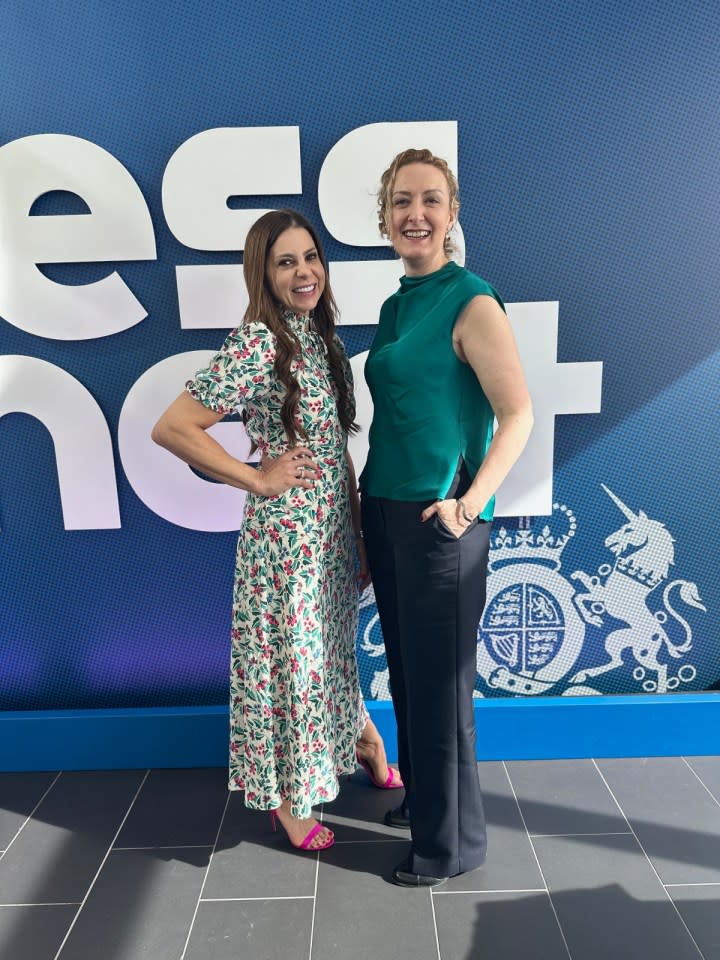Closing the gap: Now is the time to give women the money they need

The Invest in Women Taskforce, the newest government-backed and industry-led initiative tasked with closing the UK’s female funding gap, was announced last week.
It comes as British Business Bank reports have shown that for more than a decade, the amount of venture capital funding provided to female-led businesses has hardly budged at just two to three per cent of the UK’s total.
Will this new task force, dedicated to creating a £250m funding pot for female entrepreneurs looking to start – and scale – their business, finally be the one to deliver results?
Following in the footsteps of similar initiatives, including the Alison Rose Review of Female Entrepreneurship and the women-led high growth enterprise taskforce, this new taskforce seems to be bringing the one ‘unsolved’ issue to the table, Jennifer Sieg writes.
After spending six months interviewing a wide variety of UK entrepreneurs, I can understand the frustrations of female founders who feel like they are being ignored.
A mile marker for all start-ups is funding – the first agreement that validates the idea with outside investors – but for so many female founders, this has become less of a marker of success and more of a roadblock.
Let me paint you a quick picture.
Have you ever wondered how much effort goes into building an ant hill?
Jennifer Sieg
On average, it takes an entire colony of ants one whole year to see a foot of progress.
Now, what about a female-founded business? You could say it takes even longer for a female entrepreneur to successfully execute – or scale – a business plan in the UK.
Especially because only 2p of every £1 of equity funding in the UK goes to female-founded businesses — yes, only 2 per cent — and despite all of the talk of boosting funding in recent years, that figure hasn’t changed in a decade.
I will admit, it might seem a bit odd to compare the work of ants to the work of a female entrepreneur, but I shouldn’t have to explain how assiduous both are in this kind of scenario.
We would run out of time if we tried to count how many ant hills had been crushed by our careless footsteps, and I’ve lost count of how many times female founders have told me they can’t get the money they need.
It is time to focus on the money
Why are women still afraid to stand up in front of a room full of investors? And why is it that when they do, they still struggle to be heard? Isn’t it time to give women the money they need and the opportunities they deserve?
Last week, yet another government-backed and industry-led initiative was announced to address the problem, the Invest in Women Taskforce led by serial entrepreneur Debbie Wosskow and Barclays’ head of business banking Hannah Bernard.
It follows other similar initiatives, including the Alison Rose Review of Female Entrepreneurship and the women-led high growth enterprise taskforce, chaired by Starling bank founder, Anne Boden.
The latter, while well-intentioned, hardly moved the needle. In fact, two of the 12 women on the force didn’t even wait for the final report to be published before resigning, originally reported on by the Times as citing a lack of progress.
Hope for the future
While some, like myself, were originally (and unfortunately rightfully so) wary about whether or not we will see results delivered this time around, I still find myself lying in the endless hope that we do indeed get it right this time.

Will the second, third, or fourth time be the charm? The magic is waiting to happen – but Wosskow tells me she’s determined to show it: “I’m not letting this one drop.”
She adds: “Nobody has had funding as the front and central problem to solve in any of these initiatives and that is the one thing this Invest in Women taskforce is set out to do… to create the biggest funding pot in the world, £250m, to back female entrepreneurs and to make the UK the biggest place in the world to be a female founder.”
Agreeing that the two per cent mark of female funding has remained the same for “far too long,” Wosscow chuckles as she tells me her and Bernard are best placed to make this right – especially because she is known for being “good at asking men for money”.
Is that what it really comes down to? Women need to ask men for money? It sure is a disappointing – but rather true – observation to say the least.
“I have a lot of time, respect and friendship with Allison [Rose] and with Anne [Boden], but I think this is a different point where we are focused on the money and that is the thing if you ask any female entrepreneur – and I’ve been at this for 25 years – is the thing that keeps them awake at night,” Wosskow continues.
The entrepreneurial community seems optimistic this time around, and I plan to stand hopeful alongside them.
“The barriers facing female founders are well documented,” Hannah Samano, founder of women’s health platform, Unfabled, tells me.
“Let’s be honest, we’re bored of talking about the latest reports on funding when there’s little to no improvement for founders year after year,” Samano continues.
While welcoming the new Invest in Women Taskforce, Samano hopes — like all the female founders I’ve spoken to — that there will be some change soon.
But sadly, the moral of the story is that hard work doesn’t always pay off — whether it be for women or ants — and no, it’s not because they aren’t putting in the effort. More often than not, it’s due to factors entirely outside their control, like funding.

 Yahoo Finance
Yahoo Finance 